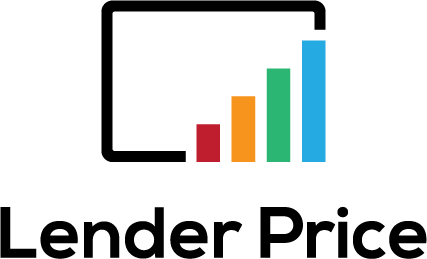


“Self-employed borrowers take advantage of the tax laws,” said Dodson, who runs Mortgage Capital Advisors. The products appeal mostly to independent contractors and self-employed borrowers, with non-QM lenders often marketing their wares to real estate agents who have entrepreneurs for clients. But unlike Fannie and Freddie, most non-QM loans rely on the borrower’s credit score and the loan-to-value ratio on the loan, rather than the debt-to-income ratio. As is true with loans sold to Fannie and Freddie, non-QM lenders must ensure the borrower can pay back the loan and is credit-worthy. Lenders today have more rigorous standards on non-QM products, and forbearance rates roughly are in line with agency loans. Loans that don’t meet the GSEs’ standard today are known as non-QM, but few observers believe there are parallels to what happened 12 years ago.
Non qm lenders skin#
And whether you do it or someone else does it, that loan is going to get done.” This ain’t your daddy’s subprimeĪbout a decade ago, mortgages that were ineligible to be bought by Fannie and Freddie were tagged with the odious label “subprime.” Such mortgages, infamous for atrocious credit standards and a lack of skin in the game on the part of borrowers, ushered in a collapse of the housing market, which triggered the Great Recession of 2008. He added: “What we’re really trying to tell them now, almost more than ever, is that the self-employed borrower hasn’t gone away. Most of them know why, but all of them really just want to know, ‘How are you going to try and close my customer today?’”

“Now we’re educating them on why there was a pause. “When Angel Oak Mortgage Solutions launched seven years ago, we had to educate on the non-QM space,” said John Jeanmonod, a vice president at the Atlanta-based non-QM lender. Though most of the sizable non-QM lenders have rehired staff, resumed lending or are on the cusp of doing so, they must still contend with a thorny problem: a good chunk of mortgage brokers are so awash in comparatively easy mortgages that they won’t bother with non-QM products, which are more complex and time-consuming than conforming mortgages. Citadel’s competitors Angel Oak Mortgage Solutions, New Rez Mortgage, Caliber Home Loans, Athas Capital Group, Carrington Mortgage Services and First Guaranty Mortgage Company all halted issuing non-QM loans, which comprise roughly 5% of the overall mortgage market. So when that happens, you don’t originate, you don’t lend at par for something at 88. But when the credit markets seize up and liquidity stops, all of the sudden we went to maybe a low of 85 or 88 cents on the dollar. “The origination credit quality was very good. “Pre-COVID, loans were trading at 103, 104, maybe even 105, and the margins were there and it was a successful business,” said Keith Lind, the executive chairman and president of Citadel Servicing, one of the biggest non-QM lenders in the country. Over the last several months, liquidity has poured back into the non-QM market, prompting roughly a half-dozen lenders to once again underwrite non-QM loans. Others took stock of their product offerings and tech stacks and initiated strategies to build stronger companies in the wake of the pandemic. Some firms quickly pivoted to conventional products to serve remaining customers. “I lost $6 million in April,” the broker added.ĭuring the freeze, non-QM lenders – who issue mortgages that can’t be sold to Fannie Mae or Freddie Mac, typically to self-employed borrowers – stopped accepting applications, collectively laid off hundreds of workers had difficult conversations with their investors, correspondent partners and mortgage brokers alike and plotted an eventual return to an uncertain market. “And damn if we didn’t close Friday and they shut it down Monday.” “I told my client, my friends, ‘Look, I know you’re supposed to close in 10 days but we’re closing Friday and you let everybody know it or you may not close,’” Dodson said. Liquidity had dried up and bond investors were running for the hills.Īt that point, Dodson was actively working on a jumbo loan for friends of his from church. His corner of the Atlanta mortgage market – high-value home loans that wouldn’t be bought by the GSEs – was booming.īut by March there were whispers that the non-QM space was going to vanish soon. Mark Dodson was having a promising start to the year.


 0 kommentar(er)
0 kommentar(er)
